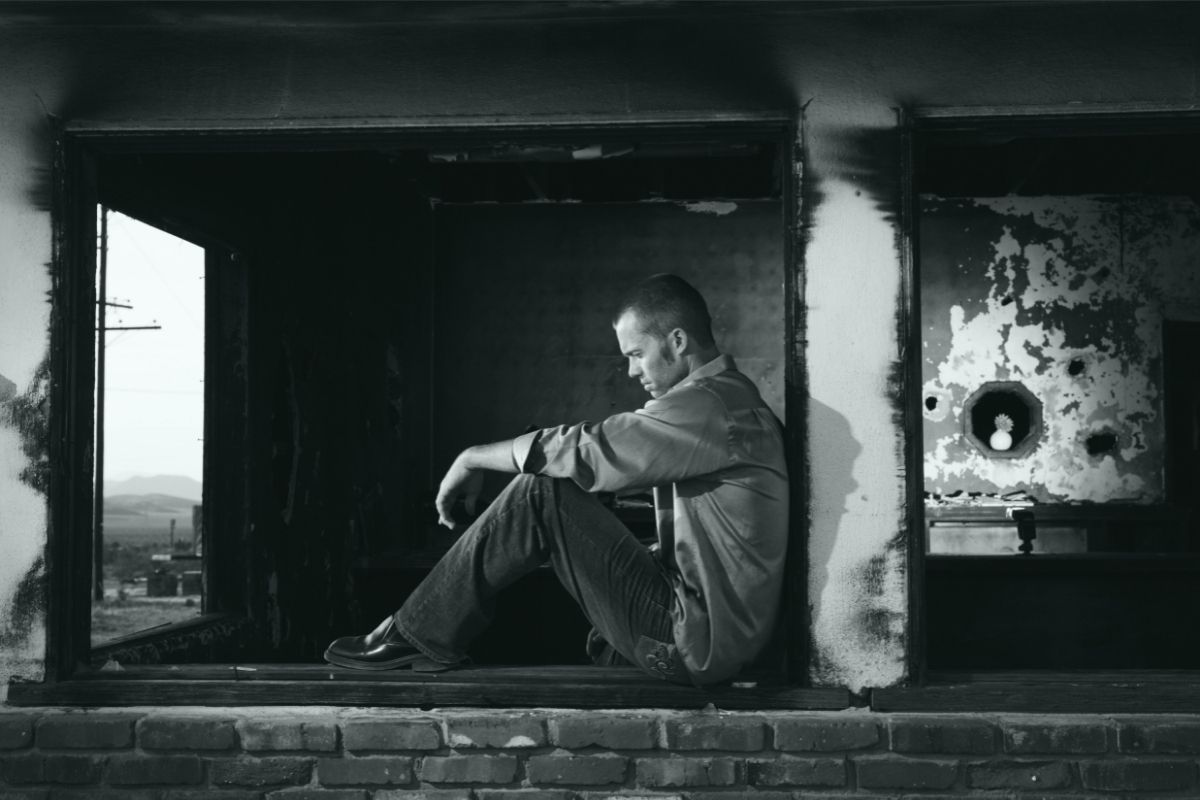What To Do When Your Life’s Falling Apart

Life’s gone topsy-turvy! Everything’s a mess. Your marriage is crumbling. Pals and family seem distant.
Work’s a nightmare. You’re struggling, but haven’t reached out for help.
You might think it’s hopeless. But don’t give up! There’s a light at the end of this dark tunnel. Bouncing back from depression and starting fresh is possible.
Feeling down or anxious often? It could be more than just the blues. Depression is a common mental health issue that affects millions worldwide.
Depression messes with your mood. It makes you feel sad, hopeless, guilty, worthless, and worried all the time.
These feelings usually stick around for at least two weeks. They really throw a wrench in your daily life.
There are different flavors of depression. Major depressive disorder (MDD) is the most common. Doctors call it clinical depression because you need medical help to beat it.
Perk Up Your Mood: Easy Steps to Feel Brighter
Want to chase away the clouds? Focus on your physical health and overall well-being. Remember, depression isn’t your fault. It’s an illness you need to manage.
But you can take action to feel happier. Here’s how:
- Get moving. Exercise releases feel-good chemicals that fight stress and help you sleep. Can’t catch some Z’s? Try a quick nap after lunch instead of binge-watching TV. Always check with your doc before starting a new workout plan.
- Fuel up right. Good grub powers good mental health. Aim for 5 servings of fruits and veggies daily. Add 3 servings of whole grains like wheat bread or oatmeal. Don’t forget lean protein like fish or chicken. Skip junk food high in sugar, bad fats, salt, and cholesterol.
- Tame the stress beast. Keep stressful situations in check. Learn to chill and do it often. Try deep breathing, focus on your breath, or count backwards from 100 by 7s. Take long walks, solve puzzles, or play games. Music can help you unwind too.
- Treat yourself right. Don’t ignore your needs. Speak up about your worries. Ask for help when you need it. Have fun! Plan a trip, a special outing, or a night out with friends.
- Connect with others. Meet new folks and keep in touch with old pals. Volunteer in your community. Join a book club, church group, or social club. Visit a nursing home to brighten a senior’s day.
- Set realistic goals. Don’t aim for the stars just yet. If you feel swamped, ask for help. Consider therapy or medication.
- Visit your doc. Get regular check-ups. Follow your doctor’s advice. Keep tabs on how you feel using symptom lists.
- Spot the warning signs. Learn the difference between normal sadness and depression. Watch for odd changes. Are your loved ones worried about you? Feeling bad most days? Sleeping too much or too little? Can’t focus at work or school? Losing or gaining weight? Appetite changes? Always tired? Feeling hopeless? Depressed? Anxious? These could be red flags for depression.
- Reach out. Talk to someone. If these feelings last more than two weeks or don’t go away on their own, see a pro. With expert help, you’ll feel better faster and make smarter choices about your future.
- Learn to cope. If you’re struggling, get help pronto. Depression is an illness that needs treatment, but it can be beaten. There’s hope!
Chart Your Course
Life falling apart? Time to make a plan! Planning ahead helps you stay on top of bills, save cash, and handle your responsibilities.
It can even keep you from feeling overwhelmed – you won’t face a new crisis every day.
Set aside money each month for basic expenses. Then plan to pay extra on your debts.
Facing a terminal illness? Start thinking about your final wishes. Where do you want to rest? Any special requests?
Talk to your loved ones about these topics before they get too tough to discuss. Some folks prefer cremation over burial, for example.
Remember, death doesn’t mean total destruction around you. It’s just the end of one chapter.
While we’re alive, we need to remind ourselves that it’s not forever. After all, death is part of life’s journey.
Battling the Blues: How Depression Messes with Your Mind and Body
Depression hits like a ton of bricks. You feel sad, angry, guilty, worthless, hopeless, helpless, lonely, tired, stressed, and anxious.
It can cause physical problems too. Headaches, sleep troubles, stomach pain, backaches, dizziness, irritable bowels, low energy, and more.
Left untreated, depression can lead to other health issues. Heart disease, stroke, diabetes, liver problems, high blood pressure, ulcers, kidney failure, weak bones, higher suicide risk, and more.
Depression messes with your brain chemistry:
- Wacky levels of brain chemicals. Serotonin, norepinephrine, and dopamine usually keep your body running smoothly. But in depression, they go haywire, causing thoughts about death and suicide.
- Overactive proteins and enzymes. Some help cells grow and repair. Others keep cells working properly.
- Less nerve growth factor. This chemical helps your brain develop normally. People with bipolar disorder often don’t make enough.
- Loss of brain messengers and hormones. Endorphins make you happy and control pain. Long-term stress depletes them. This leads to fatigue, weight gain, sleep problems, restlessness, muscle aches, poor focus, and more.
- Messed-up metabolism. Your eating habits go crazy. Your appetite goes up, then down. Sleep patterns change, body temperature goes wonky. You get more tired while your energy and vitality drop.
Stress triggers your amygdala, the emotional part of your brain. It signals your hypothalamus and pituitary gland.
These activate your adrenal glands.
Adrenaline floods your system with glucose and epinephrine. Your blood pressure, heart rate, breathing, and body temp all go up.
High stress hormones + low energy = loneliness and sadness. Loneliness triggers guilt and worthlessness.
Worthlessness makes you feel trapped and helpless. Shame makes you want to run away and hide.
Depression usually gets worse over time, but not always slowly. Sometimes, you might feel so bad you want to hurt yourself.
If that happens, get help right away. Suicidal thoughts can pop up at any age, even in childhood. But kids and teens think about death less than adults do.
Coping with Loss
When you’re grieving, it’s normal to feel sad, angry, confused, or scared. But if you can’t handle these feelings alone, talking helps bring you back to reality.
Sharing your troubles with family or friends can ease your stress.
If you need to change your life, think about therapy. As I said before, therapy helps with lots of problems, including anxiety and depression.
A therapist can teach you new ways to think about things. This helps you face emotional challenges head-on. Try to go at least twice a week.
Final Thoughts
I hope this info gives you a boost. If you want more articles like this, check out our content archive. Thanks for sticking with me!

Author: Michelle Landeros, LMFT
Michelle Landeros is a Licensed Marriage Family Therapist (LMFT). She is passionate about helping individuals, couples and families thrive.







